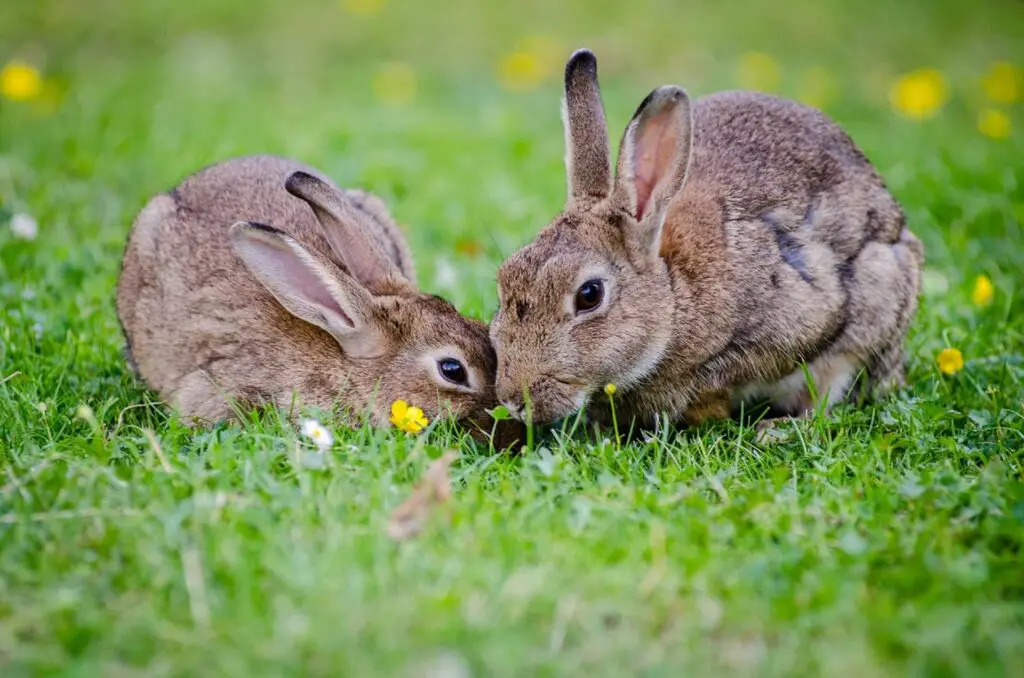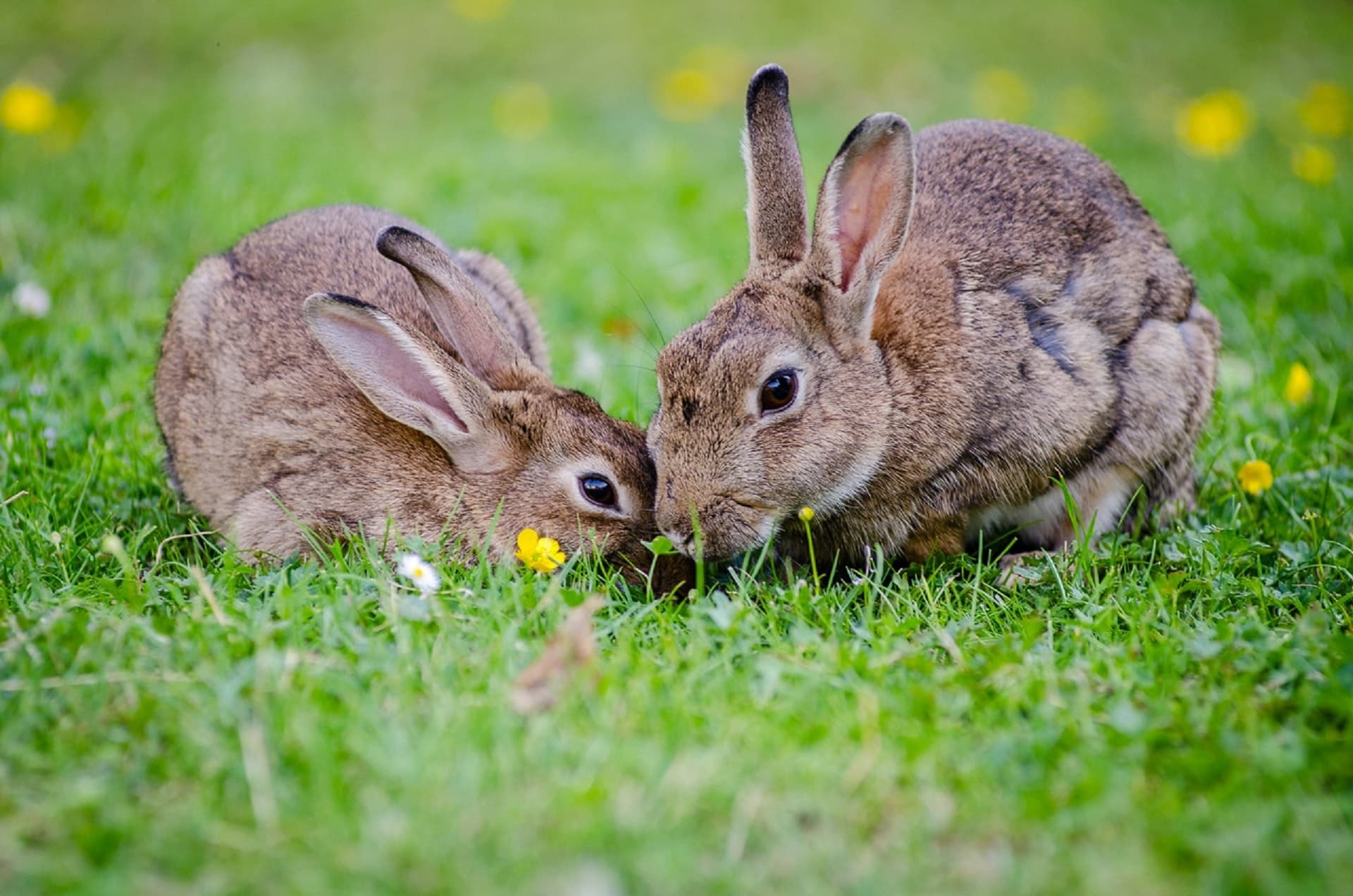
Table of Contents
Introduction
Rabbits are beloved for their gentle and fluffy nature, making them a popular choice as pets worldwide. These herbivores have specific dietary needs that must be met to ensure their health and happiness, particularly during the winter months when food sources can become scarce. As the weather changes, pet owners often wonder how to adapt their rabbit’s diet to keep them healthy and comfortable in the colder season. In this article, We will also discuss the best rabbit winter food options, answering the most common questions asked by pet owners across the U.S.
Understanding Rabbit Diets in the Wild
In the wild, rabbits are known for their ability to forage for food. They graze on grasses, meadows, clover, and other vegetation, enjoying a variety of leaves, flowers, and fruits. However, during the winter, fresh vegetation is harder to find. Wild rabbits often have to rely on bark, tree branches, and twigs for nutrition when the snow covers their usual food sources. Wild rabbits are well-adapted to these changing conditions, but pet rabbits rely on their owners to provide the right food, especially when fresh greens are unavailable.
Rabbit Diet in Winter: What You Should Know
When temperatures drop, the diet of your rabbit should be carefully adjusted to meet their nutritional needs. Rabbit winter food needs to be rich in fiber and protein to support energy levels and maintain digestive health. Here’s a breakdown of the essential rabbit winter food components that every rabbit should have access to during the colder months:
1. Hay: The Foundation of a Rabbit’s Diet
No matter the season, hay is the cornerstone of a rabbit’s diet. It should make up about 80-90% of what your rabbit eats daily. In winter, hay becomes even more important because it provides the necessary fiber and nutrients to keep your rabbit’s digestive system functioning properly. Types of hay such as timothy hay, meadow hay, and orchard hay are excellent choices. They are high in fiber, which is crucial for preventing gastrointestinal problems and promoting healthy teeth.
Hay should always be available for your rabbit, especially in winter when they may be spending more time indoors and have fewer opportunities to exercise. Ensure that the hay you provide is fresh and free from mold or dust.
2. Fresh Vegetables: A Nutritious Supplement
Fresh vegetables are an essential part of a rabbit’s diet, even in winter, although they may be less accessible. Leafy greens such as kale, spinach, and arugula are great choices. You can also offer herbs like basil, mint, and cilantro. However, be cautious with the types of vegetables you offer. Avoid high-sugar vegetables like carrots and fruits, which should be given sparingly, as they can cause digestive upset or lead to obesity in your rabbit.
3. Fruits: Offering in Moderation
While fresh fruits like apples, bananas, and berries can be a delightful treat for rabbits, they should be given in moderation. Fruit is high in sugar and should only be offered occasionally, particularly during the winter when your rabbit’s activity level may be lower. As fresh fruit can be harder to find during colder months, you can also consider offering dried fruits, but these should still be limited to prevent weight gain.
4. Rabbit Pellets: A Supplement, Not the Main Course
High-quality rabbit pellets are a good supplement to your rabbit’s diet during winter. They are specially formulated to provide essential nutrients like vitamins, minerals, and proteins. However, pellets should never replace hay as the primary food source. Pellets can be offered in small amounts, but they should only serve as a supplementary food alongside fresh vegetables and hay.
Look for pellets that are made with natural ingredients and do not contain added sugars, seeds, or artificial colors. Always make sure your rabbit has access to clean water when eating pellets.
5. Fresh Water: Keep It Accessible
Fresh water is crucial for your rabbit’s health year-round, but it becomes even more important during winter. Cold temperatures can cause water to freeze, and if your rabbit doesn’t drink enough, it can lead to dehydration. Be sure to change the water every day and use a bottle with a metal spout that prevents the water from freezing. If your rabbit is housed outdoors, you may need to invest in a heated water bottle to ensure they have access to fresh water at all times.
Winter Care for Outdoor Rabbits
If you keep your rabbit outdoors in a hutch, extra care is required during winter. Outdoor rabbits are exposed to the elements, and it’s essential to make their environment as comfortable as possible. The hutch should be well-insulated, dry, and sheltered from wind and snow. Adding extra bedding like straw will help keep your rabbit warm, as it provides insulation. You can also bring them inside for a portion of the day to ensure they stay warm, especially during extreme cold spells.
Rabbits housed outdoors need a higher caloric intake to compensate for the energy they expend staying warm. In addition to extra food, make sure they have access to fresh water and check their shelter regularly to ensure it’s free from drafts or leaks. Also, monitor their weight and adjust their food intake accordingly.
Monitoring Your Rabbit’s Health During Winter
As temperatures drop, it’s important to monitor your rabbit’s health. Winter can be especially challenging for young, elderly, or ill rabbits, so extra attention is required. Pay attention to their behavior and appearance. If your rabbit seems lethargic, is losing weight, or has a reduced appetite, these could be signs that they are not getting enough food or are experiencing a health issue.
You should also regularly check their teeth and nails, as rabbits can develop problems with overgrown teeth and claws if they are not chewing enough or if they are less active during the winter months.
Conclusion
Caring for your rabbit during the winter requires some attention to their diet and environment. The key is to provide them with a fiber-rich diet consisting of hay, fresh vegetables, and moderate amounts of fruit and pellets. Monitoring their weight and making sure they have access to fresh water are also crucial aspects of winter care. Whether your rabbit is indoors or outdoors, making these adjustments will ensure that your bunny stays healthy, happy, and comfortable throughout the colder months. By following these guidelines, you can ensure that your rabbit thrives in winter and continues to enjoy a long, healthy life.
FAQs
1. Should I change my rabbit’s diet for winter?
While you don’t need to completely change their diet, winter does require some adjustments. Increase the amount of hay and vegetables you provide to ensure your rabbit has enough energy. You can also give them more fresh water and ensure they have a cozy, warm space to rest.
2. Can my rabbit eat bark or twigs in winter?
Wild rabbits might forage on twigs, bark, and other tree branches in winter when fresh grass is scarce. However, you should not feed these to your pet rabbit. Stick to hay, vegetables, and a small amount of fruit.
3. Is it okay to give my rabbit extra pellets in winter?
If your rabbit is outdoors or less active in winter, you can offer a slightly larger portion of pellets. However, remember that pellets should never be the main food source; hay should always make up the majority of their diet.
4. Can rabbits eat snow or ice in winter?
No, rabbits should never be allowed to eat snow or ice. Eating snow can lower their body temperature and cause digestive upset. Always ensure your rabbit has access to fresh, unfrozen water.







